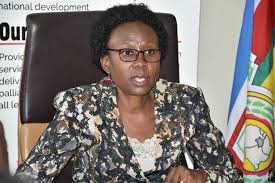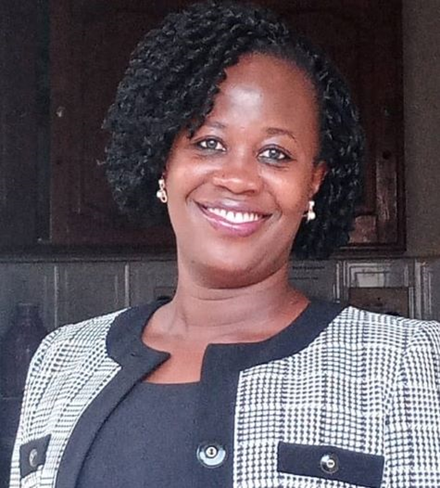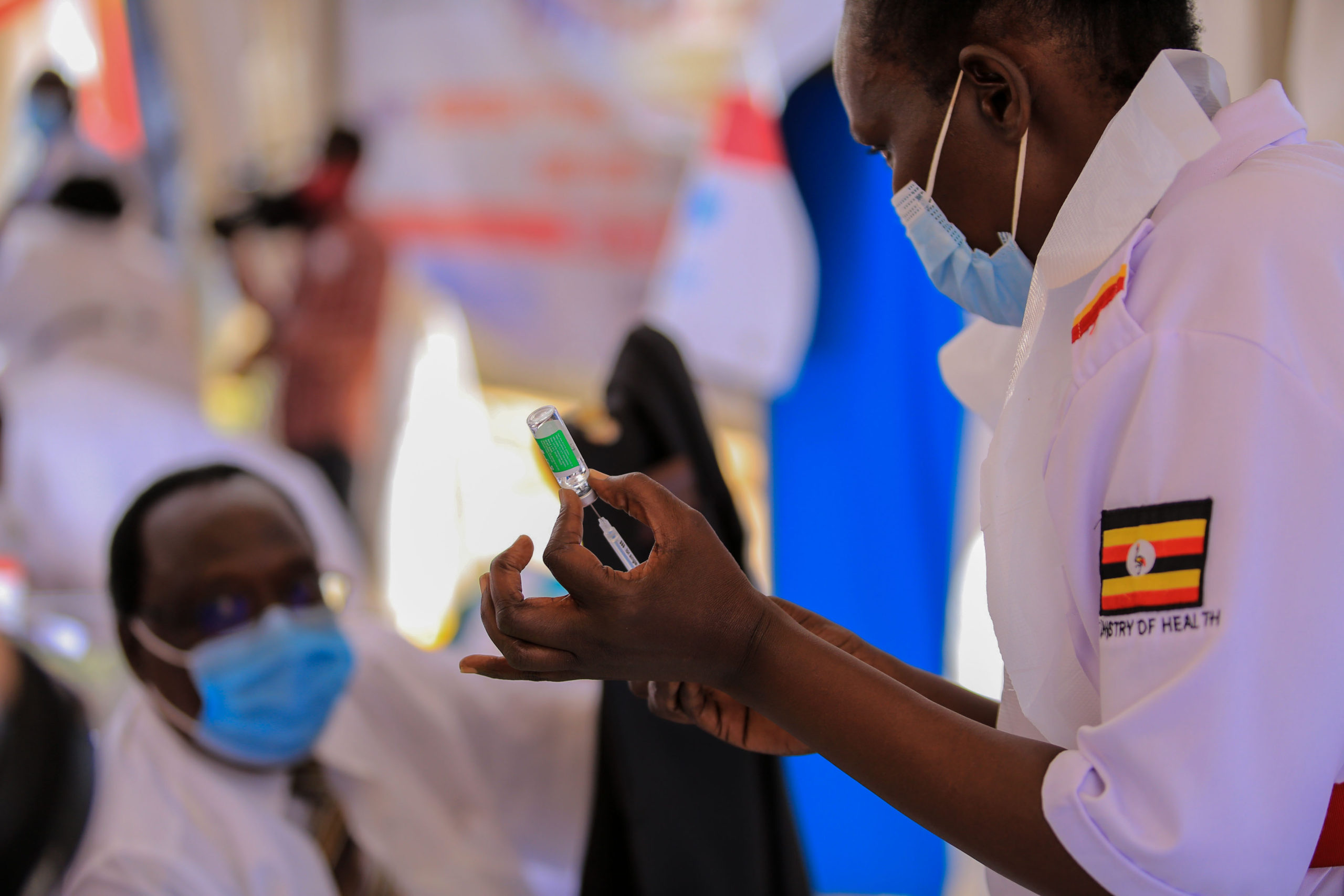During this month, the world marked the International Women’s Day (IWD) under the theme, ‘Women in leadership: Achieving an equal future in a COVID-19 world.’ The Forum for Women in Democracy (FOWODE) identifies itself as a pacesetter in promoting gender equality and women’s leadership in the country. Whereas it primarily focuses on women’s issues, FOWODE also seeks gender equality and thus involves men in all aspects of its work. FOWODE has strategically positioned itself as a champion for women’s rights protection, participation in political decision making and engaging in issues of macroeconomic governance such as Gender Responsive Budgeting (GRB). Vox Populi’s Pearl Elisabeth Kitimbo sat down with FOWODE Director of Programs, Elizabeth Ampairwe for a discussion on this year’s Women’s Day.
What is the basis of the aspect of the theme on ‘equality’ in a COVID-19 world? Is this to suggest that women have somehow, been unfairly affected by this pandemic more than men?
Anecdotal evidence from media reports and FOWODE’s work in the communities indicates that the COVID-19 pandemic has exacerbated socio-economic gender inequalities, rolling back gains made in women’s empowerment, equality and the Agenda 2030 Decade of Action. It should be noted that most of the evidence is qualitative and in-depth research is required to get the real facts and numbers.
Perhaps one of the most widely publicized effect of the pandemic was the escalation of Gender Based Violence in homes, as a result of socio-economic stress, that is partly driven by social isolation measures and restrictions on movement. Women had to stay locked down with their abusers, in the face of limited access to health services for survivors, essential protection services and social networks. According to the Uganda Police Force spokesperson Fred Enanga, there has been a significant rise in cases of domestic violence since the pandemic started.
Even before the pandemic, Uganda was already struggling with a high maternal mortality ratio of 336/100,000 live births (Uganda Demographic and Health Survey 2011). Owing to the bureaucracies in obtaining movement permits during lockdown and the focus on addressing the pandemic at the expense of other health services, there has been an increase in the number of reported cases of mothers dying as a result of delayed access to maternal health care services. Additionally, there are reports of increased teenage pregnancy rates across all regions of Uganda which is being attributed to the high poverty levels that forced some parents to commoditize their daughters in a bid for basic survival.

In order to contain the spread of the COVID-19 pandemic, public campaigns were banned and restricted to media engagements which are too expensive for women’s effective participation. Campaigns were highly monetized as evidenced by the widespread voter-buying and buying of political support, making elective politics a preserve of the wealthy. This was worsened by political patronage, where power brokers in communities are said to have used their influence to subject women to sexual violence. Some women aspirants also report harassment by security operatives as they implemented the COVID 19 Standard Operating Procedures (SOPs) especially the night curfew. The increased violence in the 2021 general elections kept away many women from political activities, thus affecting their voter turnout and eventually denying them their constitutional right to vote.
The instituted measures of lockdowns have left many women without a source of income as their businesses have been shut down and their informal trading opportunities cut off. The iron-handed beating of women informal traders off the streets of Kampala and other towns symbolizes the plight of these women, who are only looking for a day’s meal for their families, at the cost of their lives. Most of such women live from hand to mouth, with little or no savings. They therefore have no fall back given that they do not own any productive resources and are likely to fall deeper into the poverty trap. The Government is silent on the socio-economic measures to be undertaken to support such women and girls.
Notably, the pandemic increased the burden of unpaid care work on women and girls. This is as a result of children being kept in homes full time which has affected women’s incomes negatively. There is also the increased responsibility of home schooling, which does not translate into monetary value for the women, at home. Women’s socially ascribed roles of caring for ill family members, not only drains women physically, but also exposes them more to contraction of the corona virus.
There have been rampant reports of misuse of power by the police under the guise of enforcing the presidential COVID 19 directives, which has compromised the security and safety of women and girls in Uganda. Cases in point include; the brutality of five security officers against a group of women at Elegu border (Amuru district) among whom was an expectant mother and women being beaten on the streets of Kampala as they hawked fruits. These acts of brutality have instilled fear and anxiety among women, which could potentially compromise their health and well-being.
There are reports in the media and from civil society that indicate that girls have been adversely affected by the pandemic due to such things as early marriages, unwanted pregnancy, school drop outs, et al. Is there an indication of just how much the girl and woman has lost in this COVID-19 pandemic and what should have been done to avert these social challenges?
In March 2020, schools were closed implying that all children of school-going age had to remain at home. At the beginning of the pandemic, government made several efforts and many unfulfilled promises to ensure that learning continued. It should be noted however, that the said approaches of home schooling such as the use of TV and virtual learning were exclusive to the middle-income citizens, most of whom reside in urban areas. In the rural areas where majority of women and girls live, the priority was basic survival that would enable them access to food and sanitary ware. Given that majority of the young girls are from poor households that can barely afford these basics, many of them were lured into early marriages and sex for survival, both of which escalated the teenage pregnancy rates in many rural districts like Lyantonde, Luweero and others in North Eastern Uganda.

At the beginning of the lockdown, restricted movements curtailed access to essential sexual, reproductive health rights services including contraceptives. This was worsened by stock-outs in many health centers across the country as the focus tended to have shifted to addressing the pandemic.
Before the set in of the pandemic, Uganda’s teenage pregnancy rate was already unacceptably high at 25% according to the Uganda Demographic Household Survey (UDHS) report of 2016. This is worrisome because it undermines Uganda’s aspirations of harnessing demographic dividends and delivering on development commitments enshrined in Agenda 2030 and NDP III. It should be noted that teenage mothers rarely make any economic contribution to their households, they instead increase pressure on the meagre resources and the suffering health care system which, all deepen the vicious cycle of poverty.
Although we applaud government efforts of allowing pregnant mothers who were in candidate classes to sit for their final exams, we need to secure real commitment towards addressing the problem of teenage pregnancy and early marriages in Uganda if we are to attain sustainable development. The government should therefore prioritize funding for Sexual and Reproductive Health Rights (SRHRs) in order to urgently roll out the Comprehensive Sexuality Education program and to operationalize and scale up youth-friendly corners. Additionally, post-COVID-19 recovery programs need to be prioritized particularly those that target women in the informal sector.
One of FOWODE’s pillars or areas of interest is fostering women’s participation in political decision-making. Are you confident that in light of this year’s theme, women have been given a chance to lead in this pandemic response?
In Uganda, women are leading the political and institutional responses to the COVID-19 pandemic. The National COVID-19 Task Force had women leaders at the fore including the Minister of Health, Jane Ruth Aceng who launched the, “Tonsemberera campaign” which means “don’t come near me, keep your distance” to encourage citizens to adopt physical distance in public spaces in a bid to avert the spread of the virus. Other women leaders whose roles were put in the limelight included; Dr. Monica Musenero, the senior presidential advisor on epidemics, Dr. Diana Atwine, the Permanent Secretary for Ministry of Health and Miss Mary Karooro Okurut, the Minister in Charge of General Duties, among others. The same was reflected in some of the district task forces which had women playing critical roles in the response to COVID-19. Additionally, women continue to play lead roles in informal settlements as front-line healthcare workers, caregivers at home, and as mobilizers in their communities in the fight against COVID 19.

Globally, New Zealand’s Prime Minister Jacinda Ardern and Germany’s Chancellor Angela Merkel were praised for their proper handling of the pandemic in their countries. In comparison to the Ebola outbreak in 2014, former President of Liberia Ellen Johnson Sirleaf, Africa’s first-elected female president was hailed for steering the response to Liberia’s Ebola outbreak.
Having women at the fore of the COVID-19 response is critical in showcasing women leaders’ capabilities, courage, strength and resilience thus, reshaping the narrative on women’s leadership in the country. This has also increased the visibility of women’s contribution to the overall development agenda hence negating the gender stereotypes on women’s ability to lead. It is vital that women’s leadership in the response to COVID-19 is recognized and documented in Uganda’s history books to inspire and avail role models for the young women to emulate.
One of the other issues your organization engages with is macro-economic governance. Now, COVID-19 has devastated business and made life economically tougher. Are there any proposals from your side on what women-specific interventions government can implement?
Approximately 75% of the jobs permanently lost due to COVID-19 were for women because majority are in the informal sector. We call on government to scale up the Uganda Women’s Entrepreneurship Program which mainly targets the rural locations, decentralize “emyooga” and capitalize the Microfinance Support Center to enable eligible women traders in the informal sector revamp their businesses. In addition, government should ensure that information on available economic support services is widely accessible in a variety of languages and formats.
Any advice you have for civil society, government and women’s movement in respect of this year’s theme for Women’s Day?
Women comprise 52% of Uganda’s population, therefore there is need to address the widening gender inequality in the face of the COVID-19 pandemic. The policy and decision-making direction should be informed by in-depth research on the real impact of COVID-19 on women and girls, with a focus on their livelihoods, health and education. It is also essential that the national-level task force and planning departments integrate gender concerns in the responses, in addition to having gender experts to advocate for women and girls’ unique needs. Lastly, any monetary stimulus that is being designed by government must be informed by a thorough gender analysis to ensure greater equality, opportunities and social protection.

Elizabeth Ampairwe
Program Manager- Women and Leadership
Forum for Women in Democracy (FOWODE)








